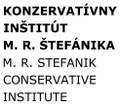
 The question of whether Slovakia is a partner or an appendage to the EU is as old as Slovakia's initial intentions to join the union. Professionals from different fields keep examining the issue, hoping to find an answer.
The question of whether Slovakia is a partner or an appendage to the EU is as old as Slovakia's initial intentions to join the union. Professionals from different fields keep examining the issue, hoping to find an answer.
Participants in a recent conference held in Bratislava in mid-July generally agreed that Slovakia has grown into a partner rather than remaining mute in the European play. The overall consensus was that Slovakia remains primarily committed to economics over other issues, which is consistent with EU priorities overall.
One guest speaker, Peter Stanek, a scholar from the Institute of the Slovak and World Economy, said there is more convergence than ever between Slovakia and the EU. However, he stated that this alignment comes at a price, including growing corporate influence over governments and some loss of national sovereignty.
World Bank representative Ingrid Brocková focussed on the positive forces that have led to convergence. She said that the legislative and regulatory framework of Slovakia is very strong and in close conformity with that of the rest of Europe. She also stated that Slovakia would, in all probability, be the first EU-10 country to adopt the euro.
Peter Gonda, an analyst with the Conservative Institute of M. R. ©tefánik in Bratislava, conceded that Slovakia had become an equal partner with other EU member countries but that it would be hurt economically if the union, led by powerful member countries like France and Germany, continued to lobby to protect their national economies from competition with low-wage countries, such as Slovakia.
Gonda noted that people are still more interested in working in the US than in Europe because of more economic advantages, despite the US traditionally having more on-going conflict between labour and management. He pointed at the lower tax burden in countries like the US or New Zealand and stressed that Slovakia's payroll taxes are still higher than it would be beneficial for the business.
The combined payroll tax obligations in Slovakia are about 50 percent and must be greatly reduced if Slovakia's long-term unemployment problems are ever to be addressed, Gonda stressed. He also added that long-term unemployment is still much higher in Europe than it is in the US.
In addition to debating the question of Slovakia's level of partnership with the EU, the conference was used to present the latest book by Bruno S Sergi and William T Bagatelas. Ethical Implications of Post-Communist Transition Economics and Politics in Europe has received high praise in the field. With the forward written by Lithuania's former foreign minister, Povilas Gylys, the book is the third product of the Sergi-Bagaleles team.
Perhaps the most interesting comments came in the closing remarks of Ivo Samson, an international security and political specialist from the Slovak Foreign Policy Association Research Centre in Bratislava. He noticed that terms such as "post-Communist" were being used less frequently to describe Slovakia. Instead, the nation is being grouped with "new EU member countries" and "new member countries". This change of definition is in contrast to conferences throughout the mid-1990s, where "post-Communist" was used almost exclusively to refer to Slovakia and its neighbours to the East.
The conference, which took place on June 14 in Bratislava, was hosted by Vysoká ¹kola mana¾mentu/City University and the Conservative Institute of M. R. ©tefánik. In addition to Peter Stanek, Ingrid Brocková, Peter Gonda and Ivo Samson, conference speakers included: Bruno Sergi and William Bagatelas (authors); Menbere Workie (City University and the Institute of Slovak and World Economy of the Slovak Academy of Sciences); Monika ©estáková (City University); Gábor Túry (Institute for World Economy, Hungarian Academy of Sciences, Budapest); Marián Tupý (CATO Institute); Edward Kemp (Deputy Public Affairs Counselor for the US Mission to the EU); Béla Galgóczi (The European Trade Union Institute); and Branislav Lichardus (Chairman of the Organizing Committee).
Article was published in the Slovakia`s English-language weekly The Slovak Spectator.